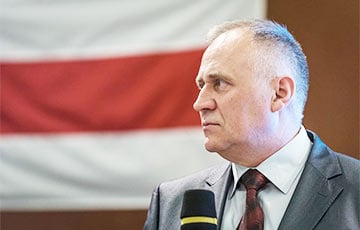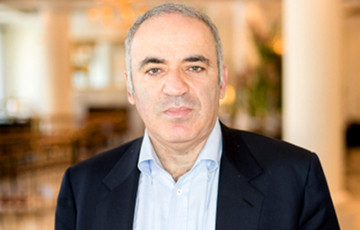Special Regime For Special Political Prisoner
17- 9.08.2024, 15:00
- 25,078

Even isolated political prisoners are sometimes seen in the colonies, and only Statkevich has not been seen for a year and a half.
Monday is Mikalai Statkevich's birthday. I have no doubt that the mailmen will be carrying letters, postcards, and telegrams to the Hlybokaye colony in sacks, stopping from time to time to rest and wipe the sweat from their foreheads. But these sacks will not be handed over to Mikalai, just as they have not been handed over for more than a year and a half.
Many political prisoners are incommunicado today. But Statkevich's situation is special. I do not want to claim that there are different degrees of isolation, and that some are isolated more, and some less. Torture does not have gradations and degrees like “severe” and “moderate”. Nevertheless, bit by bit, word by word, little by little, information about other political prisoners is leaking out from behind prison walls, getting passed by people who are released from prisons and colonies.
A former political prisoner says that while in a punishment cell, she heard the voice of Maryja Kalesnikava back in the spring (cell-type premises and punishment cells in the Homel colony are located under one roof) — she demanded to be given her letters. A former political prisoner says that he saw Viktar Babaryka, who was being escorted by the guards. So, at least they are alive. Despite the monstrosity of what is happening to them, this is good news: they are seen or heard, albeit in fits and starts. There is evidence that they are present in the colonies. Yes, in isolation. Yes, in cell-type premises. Yes, without access to lawyers. Yes, without letters, calls or visits. But — alive. And only Mikalai Statkevich has not been seen or heard by anyone. He exists virtually — for example, his wife Maryna, who demanded that Mikalai be given a phone call after his father's death, as prescribed by the Criminal Executive Code, was told by the colony’s administration: “I inform you that the convicted M.V. Statkevich was informed about his father's death, but he did not apply for a phone call.” The regime loves to play a game which it thinks to be witty, but which is actually vile. As soon as independent media or human rights activists spread information about one of the political prisoners, the regime immediately tries to refute it with the help of television. Remember Volha Takarchuk: when she was placed in a punishment cell, she went on a hunger strike. Human rights activists found out about this, and the information quickly spread. Volha later told how she exchanged the hunger strike for a warm tracksuit. It was very cold in the punishment cell, and they did not allow her to take warm clothes. And when they started writing about her hunger strike, a big prison boss came to her and asked what she wanted in exchange for ending the hunger strike. Volha demanded a tracksuit, and the deal was done. That same evening, Belarusian television showed footage from the punishment cell, in which Takarchuk was sitting with a bowl. And, of course, the footage was accompanied by the appropriate comments: look, the opposition is lying, look how she eats with appetite! And, of course, not a word about the deal with warm clothes. The main thing was to expose the Belarusians as liars.
In the same way, when last summer information suddenly appeared about the death of Siarhei Tsikhanouski in prison, television immediately showed footage from his cell: Siarhei is warming up (how could it be otherwise: look how well he is, he does physical exercise, the man has strength), and then sits down at the table. The opposition is lying, everything is fine with him.
But in November of last year, rumors about the possible death of Mikalai Statkevich in the Hlybokaye colony began to leak into the Belarusian Internet from several completely unrelated sources. It would seem that it's your move, propagandists! Show him alive and well, wielding a spoon and eating prison porridge with relish. Go wild in the comments, tell how well he lives behind bars, so well that he forgot to think about his own wife. Go ahead, refute, accuse Belarusians of lying. But there has been silence. Not a word, not a hint. The propagandists are silent, the officials are silent. They pretend that Statkevich does not exist in nature. And this silence is a hundred times more terrible than any, even the most sophisticated state lie.
Natallia Radzina then suggested: show Statkevich to the closest person — his wife. Allow them a visit or a video call. And again there has been silence. As if there is no such prisoner and never was. The special regime in Statkevich's case is not just a formulation from the criminal-executive code. This phrase has a much deeper meaning, and a very sinister one.
Mikalai won't receive his sacks of birthday cards that the whole world sends him. But we'll write them anyway. And Mikalai's jailers, destroying thousands of greeting cards, will quietly envy him: no one except an aunt from Saransk will wish them a happy birthday. Because no one needs them. An insignificant life that only gains meaning because they now personally know Mikalai Statkevich and can pour him a bowl of gruel. Someday they will tell their grandchildren about this, and they will say: “Stop it, grandpa, you couldn't have known Statkevich! He's such a man, and look at you!” And they will be right.
Iryna Khalip, exclusively for Charter97.org











